detail profile zorz sarri
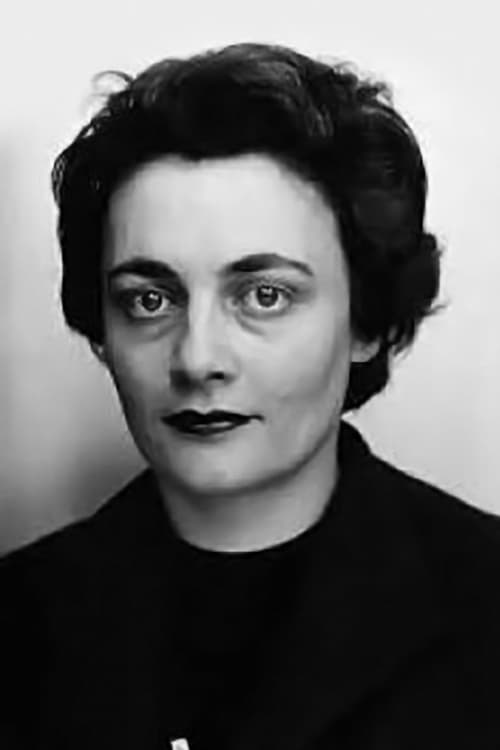
Zorz Sarri
Ζωρζ Σαρρή
atau dikenal sebagai
Riwayat Hidup
Georges Sari (Greek: Ζωρζ Σαρή) or Zorz Sari (born Georgia Sarivaxevani 22 August 1925 – 9 June 2012), a Greek author and actress, was born in Athens.
Her mother was French and her father was Greek from Ayvalik, Turkey.
She grew up in Greece, where she attended elementary and secondary school.
World War II broke out in 1939 and Greeces' entry on the 28th October 1940 before she could finish her schooling.
During the war, Sarivaxevani (later Georges Sari or Sarri) joined the Resistance and fought with the United Panhellenic Organization of Youth (EPON).
Looking back on that era, she herself noted that “the years during the Nazi occupation were a time of happiness and freedom.
We went from being miserable to happy because we chose the road of life, even if death had a place there as well.
We grieved and rejoiced all together, but we were not afraid.
There was one goal: liberation”.
She graduated while Greece was still under Nazi occupation and began taking acting lessons at Dimitris Rontiris' drama school.
Georges Sari was injured during the Greek Civil War, which followed right after World War II, suffering wounds to her hand and foot from a bomb explosion.
She received treatment at Aghia Olga Hospital.
In 1947, she was forced to leave for Paris in exile.
She worked various jobs while living there, while also enrolling as a student at the Charles Dullin School of Dramatic Art.
Sari returned to Greece together with her family in 1962 and continued acting in the theater until the rise of the Military junta, at which point she decided along with other actor acquaintances to engage in passive resistance and no longer act in the theater.
That summer, deprived as she was of any means of expression, she wrote her first novel – The Treasure of Vaghia – which started off like a game together with the children who surrounded her.
Sari decided to dedicate her life to writing: “In writing, I discovered all that I could not find in the theater, perhaps because I was not a leading lady or perhaps because I was not in a position to choose the roles that the producer or director would select for me.
I now bear the full responsibility for my books.
I do what I want; what I can.
”
She wrote numerous books.
In 1994 she won the Best Children Literature book award for her book Ninet (which was a semi-autobiography of her sister).
In 1995 and 1999 she was awarded with the Greek Cycle of Books.
In 1988 she was nominated for the Hans Christian Andersen Award.
Furthermore, as an actress, she was nominated for Best Supporting Actress in the Thessaloniki Film Festival.
Sari died in Athens on 9 June 2012, aged 87.
[3]
Info Pribadi
Peran Yang Di Mainkan Zorz Sarri
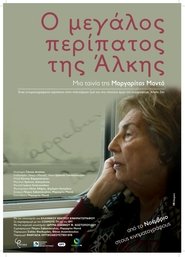 A cinematic journey through the tumultuous...
A cinematic journey through the tumultuous...Alki’s Long Walk 2017
A cinematic journey through the tumultuous life and prolific works of Greek novelist Alki Zei. A life that encapsulates Greece’s entire 20th century history and writings that have received international acclaim and continue to be honored, touching generation upon generation of readers. The film is based predominantly on the verbal testimonies of Alki Zei, but also on those of her sister, Eleni Kokkou, and her dear friends and fellow travellers, film director Manos Zacharias and poet Titos Patrikios.
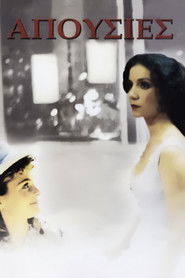 A family story of incest decadence...
A family story of incest decadence...Absences 1987
A family story of incest, decadence and desolation. Greece, early twentieth century. A bourgeois family is on the verge of breaking up. The mother has abandoned the family, and the father, a retired officer, keeps his three daughters, as well as the illegitimate son of the oldest daughter, confined in the house. After his death, the three sisters live through their personal drama. The eldest, Eleni, imbued with the morals of the time and closely identifying with her father, tries to take his place. The middle one, Maria, representing rebellion, goes off with a captain of the sanitation service, while the youngest, Anna, skating on thin ice through all this, is completely destroyed.
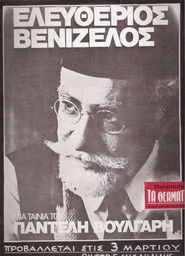 A biographical film about the great...
A biographical film about the great...Eleftherios Venizelos: 1910-1927 1980
A biographical film about the great Greek politician Eleftherios Venizelos for the period between 1910-1927. The film highlights his vision of a Greater Greece and refers to important events in Greek history such as the formation of a government by Venizelos after the Goudi movement, his dispute with the King over Greece's stance in the First World War, the temporary his withdrawal from politics after his defeat in the 1920 elections and the Asia Minor disaster. A biography of the former Greek prime minister Eleftherios Venizelos and the recreation of his acts and the political and social climate in Greece from 1910 to 1927.
 A concentration camp on a barren...
A concentration camp on a barren...Happy Day 1976
A concentration camp on a barren island is hell for the exiled political prisoners. The everyday life of the prisoners consists of interrogations, psychological and physical violence, arbitrary punishments and other torments. One of the prisoners who refuses to yield is subjected to torture. Trying to escape, he falls into the sea. When the Queen visits the island, the prison guards find the runaway and murder him without a second thought, since he is already assumed dead.
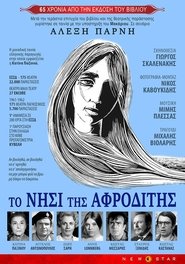 In Cyprus an EOKA fighter against...
In Cyprus an EOKA fighter against...The Island of Aphrodite 1965
In Cyprus, an EOKA fighter (against the British Administration), Kyriakoulis, is imprisoned by the British. His comrades kidnap the son of a friend of the British Administrator in retaliation. Plans to help Kyriakoulis escape fails and the British hang him. Kyriakoulis mother intervenes magnanimously and the fighters free their prisoner.
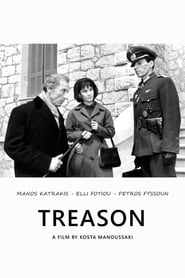 Lieutenant Karl von Stein Petros Fyssoun...
Lieutenant Karl von Stein Petros Fyssoun...Treason 1964
Lieutenant Karl von Stein (Petros Fyssoun) is serving in Greece as an enlightenment officer for the German occupation troops, and lives in the house of Professor Victor Kastriotis (Manos Katrakis) seized by the Germans. There he meets Lisa (Elli Fotiou), a young girl who appears as the professor’s niece, when in fact she is of Jewish descent. The two youths fall in love and are preparing to get married when Karl learns the truth... The film represented Greece at the 1965 Cannes Film Festival and won the Special Prize of the Soviet Peace Committee at the Moscow International Film Festival that same year.
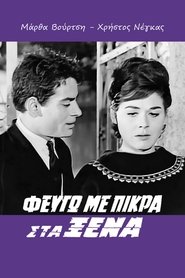 After years abroad a naval officer...
After years abroad a naval officer...I leave with Bitterness in Foreign Countries 1964
After years abroad, a naval officer reunites with his mother, who has planned an arranged marriage to a beautiful and affluent heiress. But, he is madly in love with another woman. They say love is blind. Can he have the love of his life?
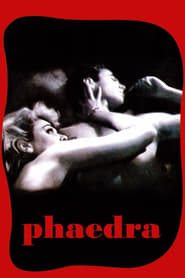 A modern retelling of the Greek...
A modern retelling of the Greek...Phaedra 1962
A modern retelling of the Greek myth of Phaedra. The young and fiery second wife of an extremely wealthy shipping magnate meets her estranged stepson Alexis and sparks immediately fly. Their love seems doomed from the beginning when she convinces him to come to Paris to meet his father.
 A party of couples from Athens...
A party of couples from Athens...The Man on the Train 1958
A party of couples from Athens is planning to attend the performance of Medea in Ancient Epidaurus. They set off in their cars bright and early in the morning, combining their theater outing with a side trip to Nauplion. They stop at a railroad junction for the train to pass. There Mado recognizes the fleeting figure of the man standing at the window of the train and she faints.
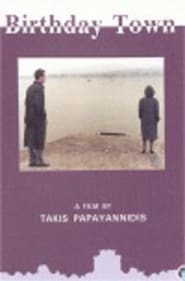
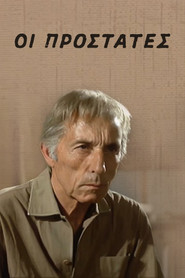 Up against his moneygrabbing relatives his...
Up against his moneygrabbing relatives his...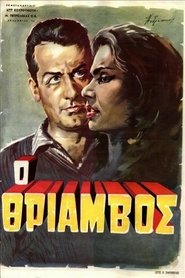 An unexpected big break changes the...
An unexpected big break changes the...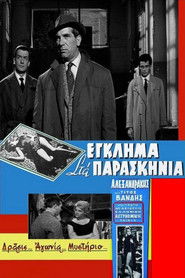 A journalist helps famed policeman Becca...
A journalist helps famed policeman Becca...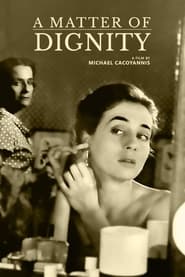 A daughter discovers her wealthy family...
A daughter discovers her wealthy family...